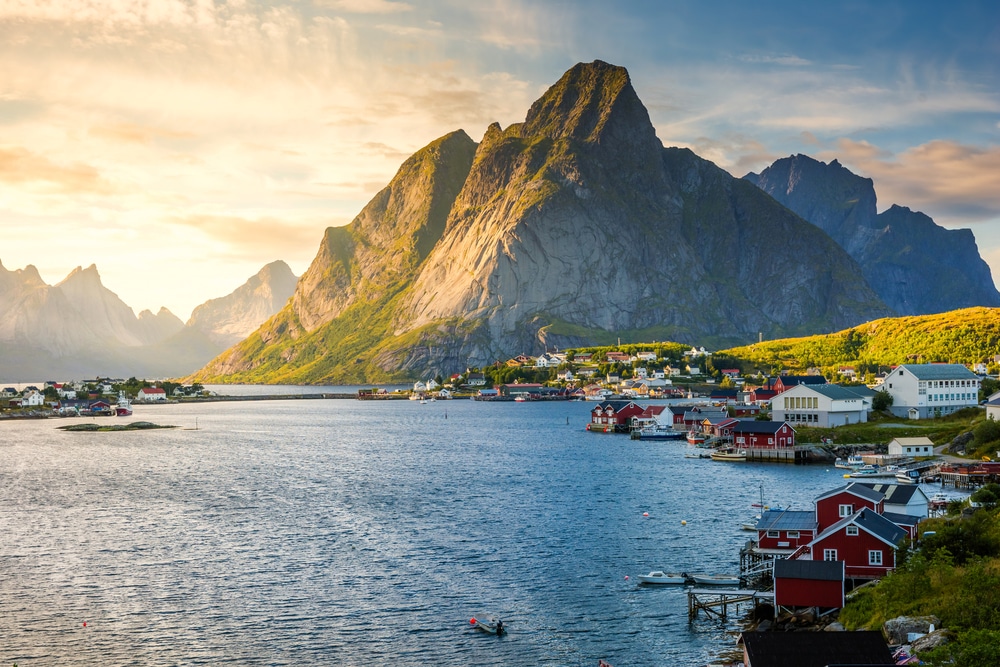At biomega®, we have made it part of our goal as an ambassador for the circular economy to minimise carbon footprint, environmental damage and waste. In doing so, we are thriving to reach as many sustainable development goals (SDGs) as possible. This includes responsible consumption and production, action on climate change, preserving and protecting our life below water, and working towards an industry that can innovate through sustainable infrastructure.
One of the key factors to achieving these SDGs is through using a circular model that begins at the source. For instance, our fresh raw material is upcycled from nearby salmon fillet producers to address the urgent issue of feed-source sustainability, whereby we can begin to minimise waste and environmental impact where possible.
How sustainable are Norwegian salmon producers?
Here in Norway, salmon farming operates under strict legislation, which is regulated by the Ministry of Trade, Industry and Fisheries, the Norwegian Seafood Council and the Norwegian Food Safety Authority.
Due to this strict regulation, Norway’s salmon farming industry continues to show the most improvement year-on-year on managing its sustainability factors. This is backed up by data from the Norwegian Seafood Council, which stated that more than 90% of all fish farms in Norway are documented to have good or very good environmental conditions.
How biomega® works with certified salmon farmers
Our extensive knowledge from 20 years of working in this industry, combined with our best-in-class technology in our Norwegian biorefinery, means we are best placed to help our suppliers and customers work towards a fully traceable and sustainable production system. We work with some of the best salmon farms in Norway, many of which are either fully certified or actively working towards ASC certification and Global G.A.P status. By sourcing our raw materials from farms that are operating under the strictest governing body for the aquaculture industry, customers can rest assured they are receiving only the highest quality of food-grade Atlantic salmon parts for use in their products.
What makes our production process circular?
A circle never truly ends – and it’s the same with the biomega® production process. Once the raw materials are sourced, we then use a sustainable business model to fully utilise the upcycled raw material, transforming it into premium ingredients. This 24/7 patented process uses continuous enzymatic hydrolysis to gently separate the nutrients (soluble and non-soluble proteins, oil and minerals) through the use of patented GMO-free enzymes. With a minimum-waste and circular manufacturing approach, we can provide consistent quality and yield for our customers, while ensuring excellent safety procedures through several certifications such as GMP+ and IFFO Global Standard.
How biomega® supports a sustainable future
For biomega®, becoming more sustainable is an intrinsic part of our production process. By coordinating with other key industry players transparently, it ensures we are all driving towards the same goal: a sustainable management of raw material and production. However, we can only do so by taking a unified and collaborative approach to sustainability.
As a proof of action towards a more sustainable production process, our new biorefinery in Hirtshals, Denmark, is optimally located near our raw material supply. Furthermore, its location is an important gateway for salmon into Europe with local volumes growing substantially year-on-year. So, while we are closer to our raw material from a geographical point of view, the location also enables us to produce ingredients by choosing techniques that help minimise our carbon footprint.
In line with this objective, the gas installed on site at Hirtshals is sourced from a Danish distribution network. Denmark as a country is moving towards being 100% self-sufficient in terms of its gas supply and, currently, 30% of gas consumed in the region is sourced from biogas. Collaborating with Greenport North on the production and use of green energy, including the circular use of surplus energy at the Port of Hirtshals and surrounding areas, is a big step in the right direction.
With the facility now in action, it will extend our capacity by a minimum of 20k MT raw materials to support our growth plans in premium human and petfood nutrition applications. As of today, we are working with the European Commission and its Programme for Environment and Climate Action via the LIFE CONQUER project to upcycle more salmon rest raw material for human consumption.

